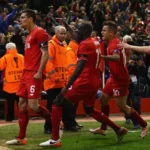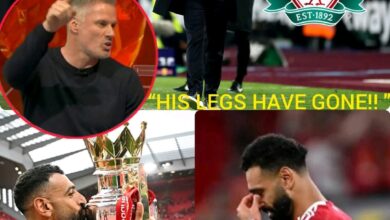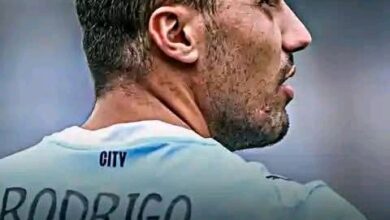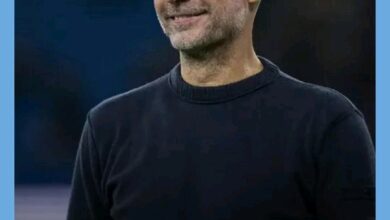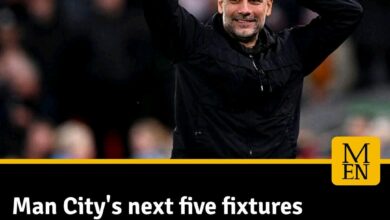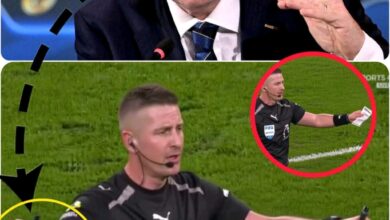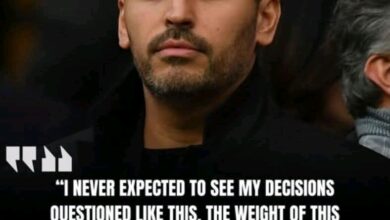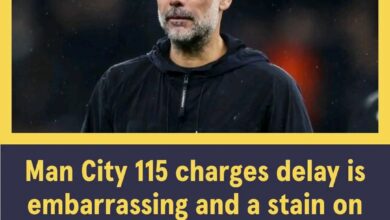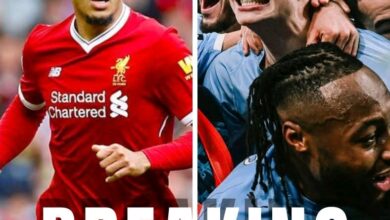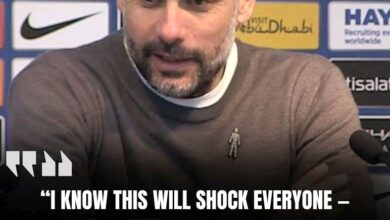Man City v Liverpool: Key stats and talking points
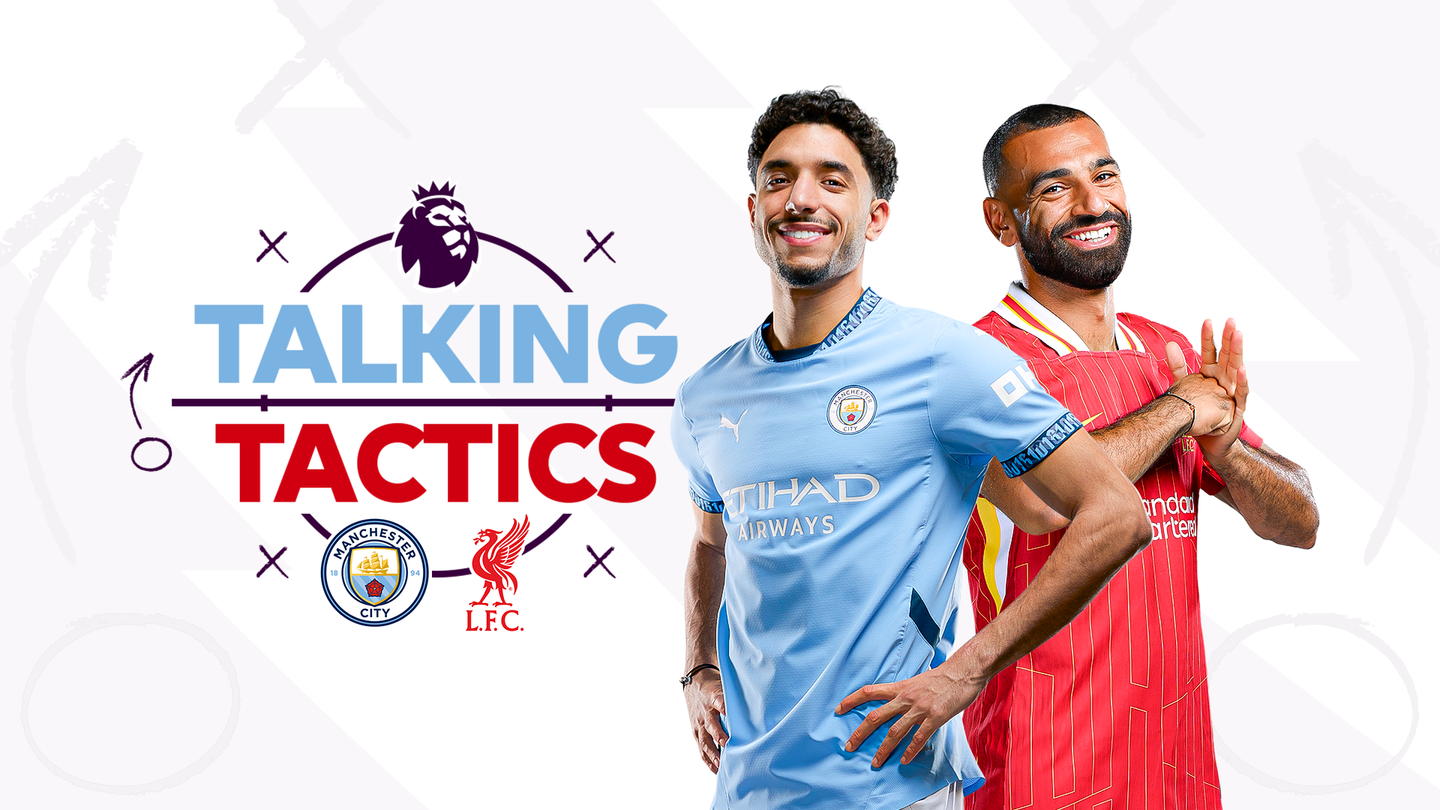
It was the kind of game that needed no posters or loud promotion. Manchester City versus Liverpool. Pep Guardiola against the one team that had made him feel human again. The one team that had made him bleed. The club that had stopped him from making the Premier League his private empire. And now, as fate would have it, Pep Guardiola was preparing to mark his 1,000th game as a manager — against the same Liverpool side that had made him question football itself.
When Guardiola sat in the press room at the Etihad that Friday afternoon, the cameras flashed, the lights burned bright, but deep down he looked like a man who had seen every shade of victory and pain. One thousand games. That was not just a number; it was a life lived in tactics, touchlines, and sleepless nights. From Barcelona to Bayern Munich to Manchester City, he had built his reputation as the most intelligent mind of his generation. Yet the record told its own story — ten defeats against Liverpool, ten scars on an otherwise perfect coaching skin.
He had faced Liverpool twenty-four times in his career, winning six, drawing eight, and losing ten. No other club had humbled him this many times. Even Tottenham, the other side that had given him ten defeats, did not cause the same emotional weight as Liverpool. For Pep, every game against the Reds was like a chess match with knives instead of pawns.
Last season, Liverpool had beaten Manchester City twice, both times by two goals. The wounds were still fresh. He remembered walking down the tunnel that night, hearing the mocking cheers of the Kop, and telling himself that football is cruel. But he also knew it is beautiful — because football always gives you another chanc
This Sunday, that chance would come again. And it would come in front of a home crowd that had become City’s fortress. The Etihad — a place where opponents came to survive, not to win. Manchester City had won eleven of their last twelve home games in all competitions. The last six victories had come by at least two goals. That was domination. That was control. And that was exactly what Pep wanted Liverpool to feel when they walked onto that pitch.
Erling Haaland, the monster in boots, was the symbol of that control. Seventeen games, twenty-seven goals already this season for club and country. Ninety-eight goals in just one hundred and seven Premier League games. He needed just two more to hit a century. Alan Shearer’s record of reaching 100 goals after 124 games looked like it would be shattered into dust. Haaland was built for records, for fear, for nights like this. Every time he stepped onto a pitch, defenders prayed the ball wouldn’t find him. But it always did.
Guardiola had watched Haaland grow into a weapon — not just a striker, but a symbol of the new Manchester City. The kind of player who didn’t just score goals, but made teams change their formation in panic. Yet Pep also knew that Liverpool had a habit of writing their own stories, especially when people doubted them.
Liverpool were wounded animals, but dangerous ones. They had lost six of their last seven games not long ago, and critics said Klopp’s fire was gone. They said Liverpool were finished, a shadow of the fierce red machine that once hunted Manchester City from Anfield to Wembley. But suddenly, in the last two weeks, everything changed. Two victories — one over Aston Villa and another over Real Madrid — brought belief back to Merseyside.
That win against Real Madrid was especially poetic. Klopp’s men had only 38.8% possession — their lowest in months — but it did not matter. They didn’t need the ball to destroy the Spanish giants. They only needed belief. Liverpool had nine shots on target compared to Madrid’s two. Their expected goals stood at 2.51 while Real could only manage 0.45 — the lowest for Madrid in a year. It wasn’t luck. It was discipline. It was that famous Liverpool intensity reborn.
As Guardiola watched the footage, he knew what that meant. He knew Liverpool were coming not just to play football but to make a statement. They wanted to ruin his 1,000th game. They wanted to make him remember, once again, that football is never fully yours.
And then there was Mohamed Salah. Thirty-three years old now, but still the face of Liverpool’s dreams. The Egyptian King had tortured Manchester City for years. Fifteen Premier League goal involvements against them — more than any other player in history. If there was one man capable of spoiling Pep’s celebration, it was him. Even when he was quiet, like he was against Real Madrid — just two shots, eleven passes completed — he was still dangerous. Because Salah didn’t need ninety minutes to hurt you. He only needed one moment. One slip, one inch, one second.
Guardiola’s mind played out every scenario. He knew how Salah drifts wide, how he waits for that pass from Alexander-Arnold, how he angles his run between the full-back and the centre-half. He knew how Darwin Nunez’s chaos could open spaces. He knew how Klopp’s energy on the touchline could light a fire in his players. Guardiola respected Klopp more than anyone. But respect doesn’t mean mercy.
Inside the Manchester City dressing room, the atmosphere was calm but tense. Haaland sat with his headphones on, eyes closed, lost in his ritual. Kevin De Bruyne was stretching quietly, his mind ticking like a clock. Phil Foden, the boy from Stockport, was bouncing a ball against the wall, eager to shine again in the game that always felt like England’s true derby of modern football.
For City fans, this match was more than just three points. It was pride, history, and legacy. Because every great era needs an enemy — and Liverpool had been City’s greatest enemy in the Guardiola age.
The stats might say City were favorites — the home wins, the goals, the records — but football does not respect numbers. It respects hunger. And both clubs were starving for dominance.
For Liverpool, this was a chance to announce their comeback. A message to the Premier League that they were not done. Klopp had told his players before training, “They think we are weak. They think we have fallen. Let’s show them how wrong they are.” Those words burned in every Liverpool heart.
And for Guardiola, this was destiny. One thousand games. Every one a lesson. From the perfection of Messi and Xavi at Barcelona, to the heartbreak of semi-finals with Bayern, to the creation of a football dynasty at Manchester City. This was not just a match — it was his life’s work meeting his most stubborn rival.
The storylines were everywhere. Haaland chasing a record that had stood for decades. Salah chasing Guardiola’s happiness again. Klopp and Pep facing off like two professors of chaos and control. The old master versus the relentless challenger.
As the city of Manchester prepared for the clash, pubs were already filling. The songs were loud, the jokes were brutal. On one side, fans in sky blue talked about treble dreams and dominance. On the other, Liverpool’s travelling supporters reminded everyone that history belongs to the Reds.
Guardiola didn’t care about the noise. He cared about precision. About space. About moments. He had a plan, as always — but he also knew Klopp would break it. That’s what made their rivalry beautiful. It was a battle of geniuses, a war of ideas wrapped in 90 minutes of chaos.
The night before the match, Guardiola sat in his office at the training ground. He looked at the whiteboard filled with tactical lines and markers. He thought about the first time he faced Liverpool — how unprepared he was for their intensity, how much he had grown since then. He smiled. He whispered to himself, “This is why we do it.”
The morning came, and the Etihad woke up alive. The stands filled early. The air felt thick with history. Fans held banners that read “1,000 Games of Genius.” Guardiola walked out and paused. He looked around, soaking in the sound, the color, the fire. He wasn’t nervous. He was emotional. A thousand games. And yet, he felt like a beginner again.
Liverpool arrived with confidence, walking out in their red shirts like soldiers marching into a storm. Klopp clapped the away fans, smiling that fearless smile. His players lined up, eyes burning. Salah glanced at Haaland. A small nod. Two killers acknowledging each other.
When the whistle blew, everything else faded — the records, the stats, the history. Only the game remained. Guardiola’s City moved like a machine, pressing high, controlling possession. But Liverpool refused to be passengers. They pressed back. They countered. They fought.
Every touch, every tackle felt like a story of its own. De Bruyne’s passes slicing the field. Salah twisting defenders inside out. Haaland wrestling with Van Dijk like two gladiators in a modern coliseum. Klopp screaming instructions. Guardiola clapping and shouting, “Go again!”
The crowd could feel the tension. Every shot drew gasps. Every clearance drew cheers. It was not just football; it was theatre. The kind of match that reminds you why people call it the beautiful game.
As the minutes passed, the emotion built. Guardiola’s men were desperate to give him a perfect anniversary. Liverpool were desperate to ruin it.
It didn’t matter who won in the end. What mattered was what it meant — the power of rivalry, the beauty of obsession, the magic of football when two giants collide. Pep Guardiola’s 1,000th game was never going to be just a number. It was a symbol of everything that had made him who he is — the genius, the dreamer, the obsessive mind that turned football into art.
And as the final whistle approached, and the crowd sang his name, Pep knew one truth — win or lose, there was no better way to celebrate a thousand games than facing the one opponent that had always made him better. Liverpool had made him suffer, yes. But they had also made him great.
Football is not about comfort. It’s about challenge. It’s about rivals. It’s about moments that live forever. And this, between Manchester City and Liverpool, was one of those moments — born from respect, rivalry, and the endless hunger to be the best.





